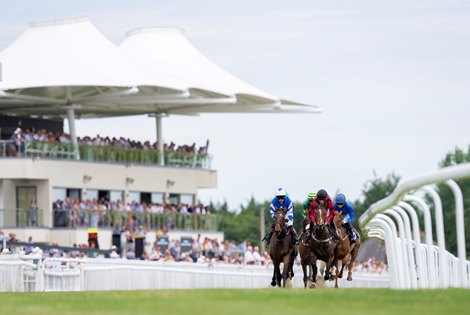The parent company of Sky Bet and Paddy Power has warned racing must embrace major change as it has become “unprofitable” for bookmakers, with a shrinking audience and the sport’s “underlying quality” in decline.
Writing in the Racing Post amid a media rights row with racecourse group Arena Racing Company, Ian Brown, chief executive of Flutter Entertainment’s UK and Ireland division, also questions prize-money levels and asked where its payments to racecourses were going.
The comments come the week after Flutter’s latest attempt to put pressure on ARC to return to the negotiating table over the media rights contract between the two sides. Last week, Paddy Power and Sky Bet did not offer early prices for a meeting at the ARC-owned Chepstow, instead offering odds only in the minutes before each race was scheduled.
That followed similar action at the start of the month for a card at Chepstow’s stablemate Bath. On that occasion the two bookmakers had not been due to offer any prices for the meeting but ultimately bet on the contests just before the off following a legal intervention by ARC.
In his opinion piece, Brown said bookmakers and British racing had “some serious shared challenges.”
He added: “Our data shows how declining prize-money leads to declining field sizes, making the product for customers less compelling. This, in turn, leads to lower betting revenues, and so less revenue for the sport. It is a clear and concerning spiral.”
Bookmakers contribute around £350 million ($451.5 million) to British racing’s finances annually through media rights payments, the levy, and sponsorship. However, Brown warned the sport that his firm was paying more for a declining product and said the relationship between media rights payments and prize-money has become increasingly distant.
He added: “Our data suggests that the incremental value customers place on certain fixtures is much lower than what it costs us just to stream those races. Indeed, what we pay as just one bookmaker is often close to the total prize-money on offer.
“We estimate that overall streaming revenue is around three times the prize-money for meetings like Bath and Chepstow—and that’s also before the levy contribution—which makes us wonder where the rest of the money is going.
“Yet there’s a bigger, more fundamental issue here. We, as Flutter, simply cannot afford to keep investing in horse racing as an unprofitable product with a shrinking audience, where media costs are escalating at significant rates, and the underlying quality of the product is declining.”
Brown praised the willingness of the sport to try new things, saying Premier race days were outperforming other fixtures, but called on racing to consider going “further and faster” with that initiative while also exploring other options to innovate and experiment.
The media rights contract between Arc and Flutter runs until 2027. While agreements are private, Flutter previously claimed total media rights payments from bookmakers to racecourses were more than twice the levy, which stood at £105 million in the most recent scheme. Media rights deals typically involve an operator paying a percentage of betting turnover to racecourses for rights to carry live streaming in betting shops and online.

